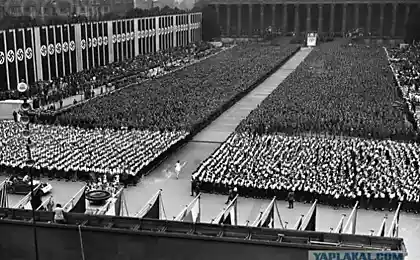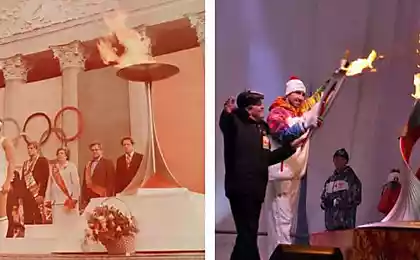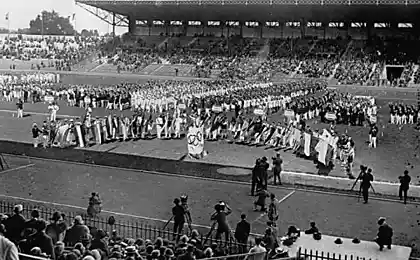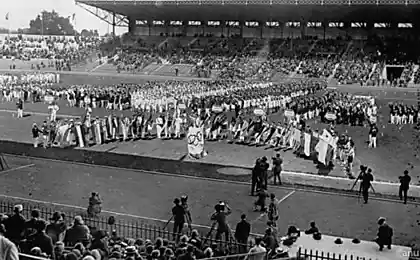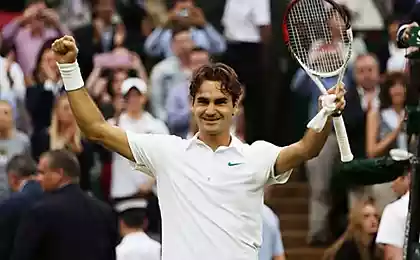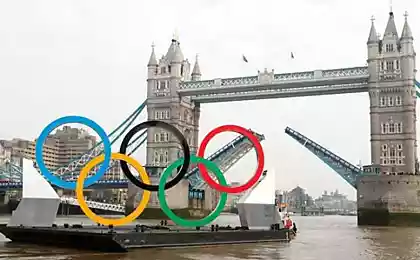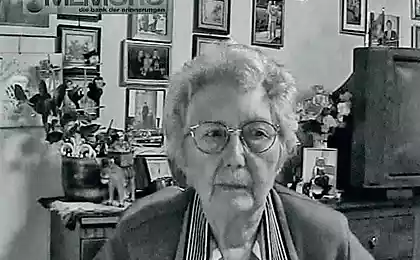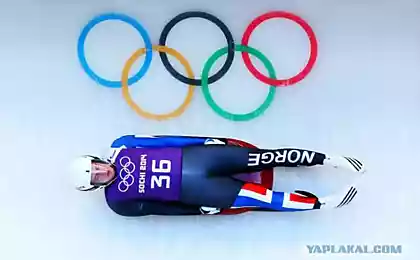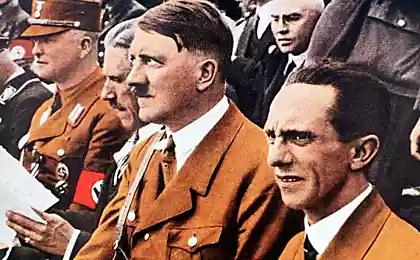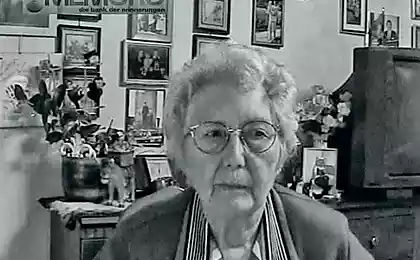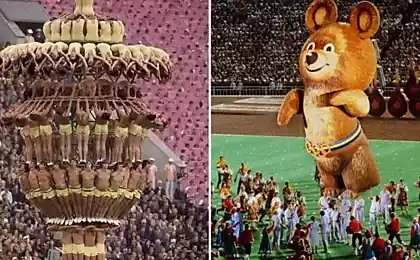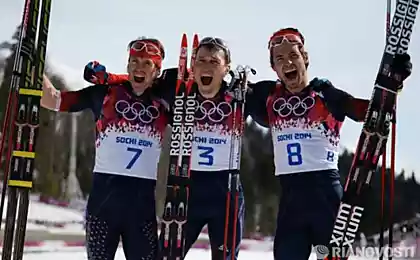1829
Berlin-36. The history of the Nazi Olympics (57 pics + text)
A distinctive feature of many totalitarian regimes is increased attention to the gloss and ceremonies. Particular importance was attached to the ceremonies and celebrations in Nazi Germany. Among all the events of the Nazi ceremonial perhaps the most magnificent and spectacular was the 1936 Berlin Olympics.
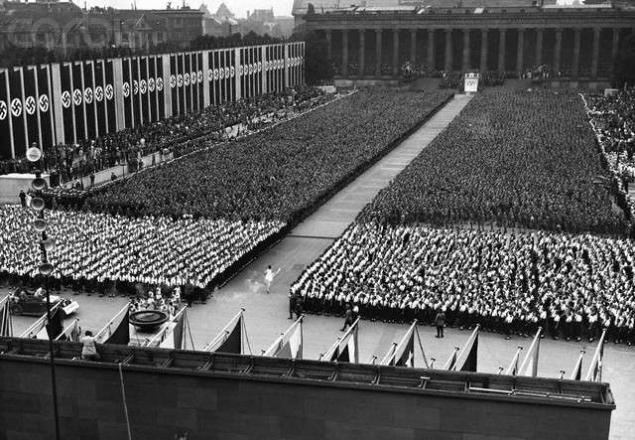
Historic Berlin stadium today is seen by many not only as a sports arena battles, but as a monumental reminder of the Nazi era. It was here, on the "Olympiastadion" Hitler had a grand propaganda campaign and under the pompous music of Richard Wagner opened the Summer Olympic Games in 1936 in front of a crowd of 100 thousand. It was here, to the chagrin of Hitler, the black American athlete Jesse Owens won four gold medals, thereby exposing the myth of the superiority of the question of the Aryan race. It was here two years later, the British met with the German national football team, and during the anthem of Germany, they had to submit to political demands and saluted the Fuhrer. But the British revenge for this humiliation, winning with a score of 6: 3.
The sports complex "Olympiapark", which is now the center of the stadium "Olympiastadion", was built before the First World War, when Germany won the right to host the Summer Olympics in 1916 In 1933, Hitler came to power, taken over not use the area adjacent to the racetrack "Grunwald". His grand plan included the construction of a stadium with a capacity of 86,000 seats, a separate hockey stadium, arena riding, swimming pool and an outdoor sports arena. Sports complex fits to Mayfeldu where the Nazis carried out mass rallies.
Photo 1936.
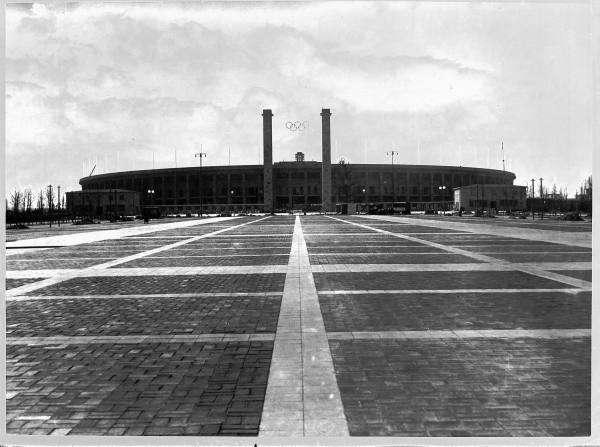
Stadium today.
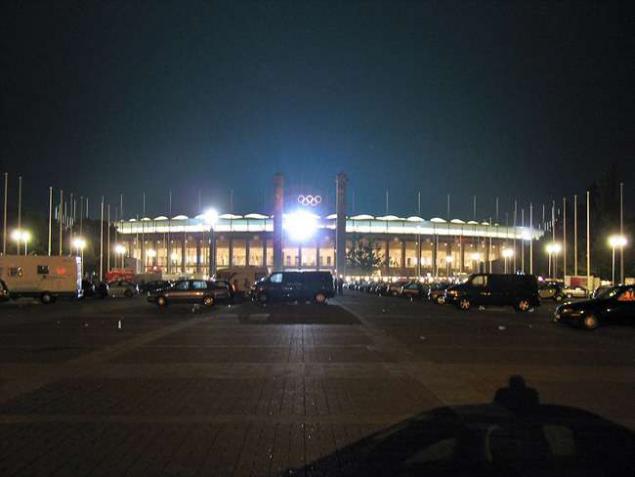
Nazi sculpture symbolizing the superiority of the Aryan athletes.
1936 Berlin Olympics - probably the most controversial in the history of the Games. After World War I, in 1920 and 1924. Germany was not allowed to participate in the Olympics. However, this unfortunate fact is not much bothered Hitler - he was convinced that compete with the "inferior non-Aryans" for German athletes would simply humiliating. Bruno Matlits, a representative of the Nazi Party, confirmed this position in a letter to the members of German sports clubs, defining the Olympic Games as "inundated by the French, Belgians, Poles and Jews Negro».
Despite these beliefs Nazis, May 13, 1931, the International Olympic Committee gave Germany the right to host the Games in 1936, this step is explained by the fact that during this period Germany has not been under the power of Nazism, and the IOC decided that such a move will help restore Germany the ranks of civilized countries. Problems arose after 1933, when pronounced nationalist and anti-Semitic views Hitler became state policy. Goebbels made every effort to persuade the Fuhrer to reconsider their attitude to the Olympic Games. He claimed that the Olympics will show to the world community revived power of Germany and provide a first-class party propaganda material. In addition, the contest will allow undoubtedly strong German team to show other peoples 'Aryan' athleticism. Fuhrer persuading. The Fuhrer agreed. For the Games was asignovano 20 million Reichsmarks, ie $ 8 million.
However, in 1934 the world sparked considerable debate about the appropriateness of holding the Games in Berlin. Particularly tumultuous they were in the United States. Jewish, Catholic, religious and secular organizations teamed in its condemnation of the German Games. As said in 1933, the IOC president Avery Brundage:
"The very foundation of the modern revival of the Olympic movement will be undermined by allowing individual countries to limit participation in the Games for reasons of origin, religion or race».
Olympic rules prohibiting any racial or religious discrimination; many athletes and sporitvnye organization insisted on boycotting German Games.
Sam Avery Brundage was categorically opposed to the boycott. He said that the Olympic Games "belong to the athletes, not politicians." In 1935, his motives in the issue of support for the Games began to cause some suspicion, as he suddenly said that in fact behind the opponents of the Berlin Olympics there is a real force - the "Jewish-Communist conspiracy." This bullshit is certainly not true, as against the boycott were even some Jewish sports organization. However, to deal with a wave of protest, Brundage and other officials of the IOC in 1934, visited Berlin and assess the situation of discrimination in Germany. Of course, the Nazis how to prepare for a meeting expensive guest for this visit. In Berlin disappeared any signs of anti-Semitism; committee members were able to meet with athletes Jews who assured them of his full freedom to play sports.
Disputes were resolved to boycott the December 8, 1935, when the Amateur Sports Association voted to participate in the Games. Nevertheless, many athletes all decided not to go to Berlin. On July 1936 was even planned an alternative "People's Olympics" in Barcelona, Spain, but its implementation has prevented the outbreak of the civil war there.
Shortly before the Games in Berlin, 6-16 February 1936, Germany hosted in Garmisch-Partenkirchen (Bavarian Alps) and the Winter Olympics. The Olympics gave the leadership of the Reich chance to try out techniques that then, during the Berlin Olympics were brought to perfection. So, for the sake of decency in the face of foreign visitors were discontinued all sorts of anti-Semitism.
Guests who visited Berlin in 1936 can be understood: many of them thought that the German anti-Semitism - a myth. On the streets and stalls temporarily lost all anti-Jewish posters, brochures and books. German newspapers for the duration of the Games was forbidden to print stories and anti-Semitic articles. Berliner was even ordered from June 30 to September 1, to refrain from negative public statements about Jews. To give the impression of liberalism of the Third Reich, to participate in the Games as part of Team Germany made even one half Jewish (very helpful "Aryan" appearance) - fencing champion Helene Mayer. At the Winter Olympics team was also one athlete and a half Jewish blood - hockey player Rudi points.
The emblem of the Berlin Olympics.
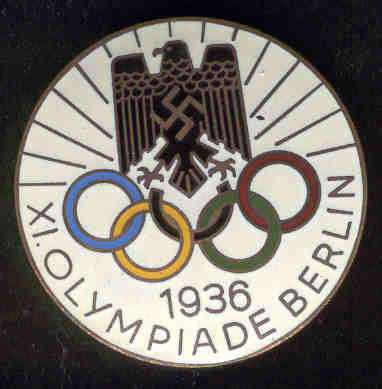
Leadership and the people of Berlin have shown towards athletes and guests arrived generous hospitality. In particular, the consumption of eggs for Berliners was temporarily curtailed, so that guests can eat without restrictions. Temporarily suspended the laws against homosexuals. The whole city was lavishly decorated with swastikas and other Nazi symbols, which gave him a festive and majestic views. Military mobilization was also hidden from prying eyes. Here are the steps the Ministry of Propaganda, which refers to the Olympic Village:
"The northern section of the Olympic Village, originally used by the Wehrmacht, should not be called barracks, now it will be called" the northern section of the Olympic Village "».
The world press was delighted. Only two or three of the most astute reporter could look beyond the beautiful facade - but they did not see the broader picture. In the northern suburbs of Berlin already filled with Jews and other undesirables Oranienburgsky camp.
The opening ceremony of the Games is well remembered by all who saw it. Across the city fired the gun. Hitler personally issued at the stadium "Shportpalast" 20 thousand pigeons. Circled the stadium zeppelin "Hindenburg" length of almost 304 meters with a giant Olympic flag in tow. In the middle of all this splendor to the assembled crowds marched athletes from 49 countries.
It is appropriate to quote Joachim Fest:
"August 1 under the solemn ringing of bells, Hitler opened the Olympic games surrounded by kings, princes, ministers, and numerous guests of honor. When former Olympic champion marfonets from Greece Spyridon Louis gave him an olive branch as a "symbol of love and peace," the choir sang a hymn created by Richard Strauss, and soared into the sky flocks of pigeons in the world. In this picture reconciled the world created by Hitler, fits the fact that some of the outputs of the stadium teams (including the newly subjected to provocations French!) - Passing the podium, raised hands in a Nazi salute, which they later, making up Points on the part of the resistance, willingly have stated "Olympic privestviya" ».
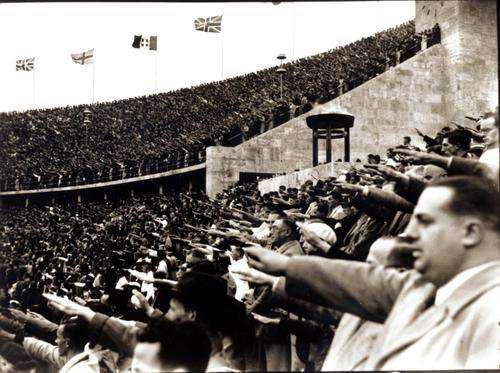
Germany fielded the most numerous team - 348 athletes. Team of the United States was the second largest - 312 people, including 18 African Americans. Led a delegation of the American Olympic Committee President Avery Brundage. The Soviet Union did not participate in the Berlin Games.
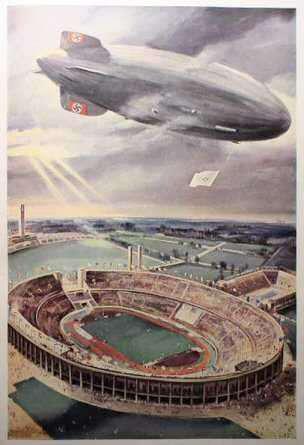
Overall, the results XI Olympiad in Berlin were positive for the Reich. Huge investments in physical training and sport have produced results: the German team won 33 gold medals, leaving far behind the rest of the team. The Nazis believed that racial "superiority" Aryans found further confirmation.
However, although many Nazi prejudices like to reiterate some of them came into conflict with reality. Fencer-poluevreyka Helena Mayer took second place, and Jewish athletes from other countries won gold and silver medals. This paramilitary sport as fencing, superiority of the Jews was quite unpleasant for the Nazi leaders. But invaluable Meyer Nazi propaganda more than compensated for this trouble. Standing on the podium she gave the Nazi salute in due form, and at a reception in honor of the winners of the Olympic Games shook hands with Hitler. It captured in a documentary film "Olympia" and Leni Riefenstahl.
In general, awards were distributed as follows.
Number Country Gold Silver Bronze Total
1 Third Reich 33 26 30 89
2 USA 24 December 20 56
3 Hungary 10 January 16 May
Italy 4 September 8 May 22
Finland 5 June 7 June 19
6 France July 6 June 19
Sweden 7 May 6th September 20
8 Japan June 4 August 18
9 Netherlands June 4 July 17
Much more serious challenge to the Nazi dogma and prejudice was the success of the black athlete Jesse Owens of the United States. In general, the US team has proved very worthy and won 56 medals, 14 of them were obtained blacks. Speech Owens made a strong impression on the audience. He not only took part in the relay 4x100 m., And helped the US team to get in this kind of gold, but also won gold in the sprint race at 100 and 200 m., As well as in the long jump.
The striking success of Jesse Owens was a very unpleasant Nazis and put them in an awkward position. Goebbels personally instructed the German press does not veer black athletes during the Games. Instead achieve Owens pushed aside and suppressed, but Hitler refused to shake hands with Owens or any other black athletes. At the same time, the success of the United States Owens presented as the defeat of Nazi ideology. However, the United States and was himself something to think about in terms of race relations. And they have blacks lynched. During the Olympics, there was a very unpleasant incident: Avery Brundage dismissed Marty Glickman and Stoller Sen to participate in the relay in athletics. In track and field team were the only Jews, and act Brundage was rightly regarded by many as an attempt to grovel to please Hitler. If you do not talk about the success of Meyer and black Americans, the 1936 Olympics in Berlin was undoubtedly a success for the Germans. It produced a very strong impression of Hitler; Hitler even Albert Speer said that "in 1940 the Olympic Games will be held in Tokyo. But then they always forever will be held in Germany in this stadium ».
Hitler as a "father of the nation».
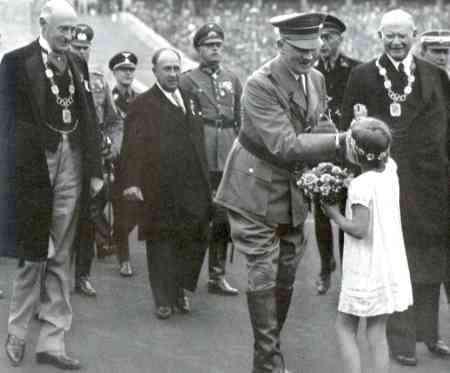
After the Games in 1936 the Nazi regime resumed briefly interrupted persecution and oppression of Jews. Within two weeks after the closing ceremonies Jews once again faced with violence and discrimination. Helena Mayer in 1940, became citizens of the United States of changed his name to Meyer. Her uncle was sent to a concentration camp, where he met his death. It is sad to realize Olympics allowed the Third Reich to win the respect in the world. Here's what he wrote 16 August 1936 William Shearer:
"I am afraid that the Nazis succeeded in their propaganda. Firstly, they organized games on a large scale and generosity than ever before; estesvenno athletes liked it. Second, they made a very good reception for all other guests, especially big business ».
It was only after the Second World War in 1939 the world finally saw the true face of Nazi Germany.
Olympic medals.
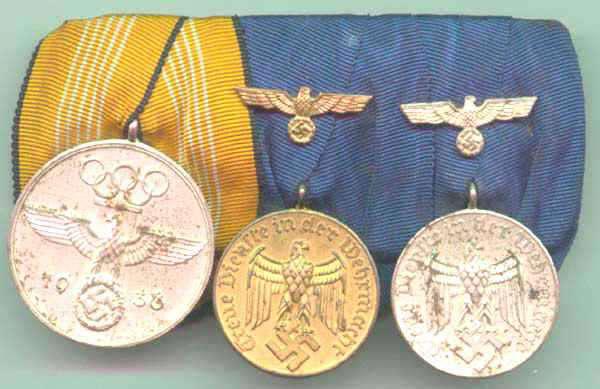
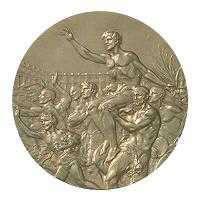
Project Olympic venues.
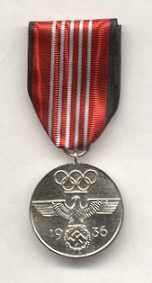
Discussion of the draft.
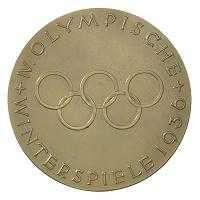
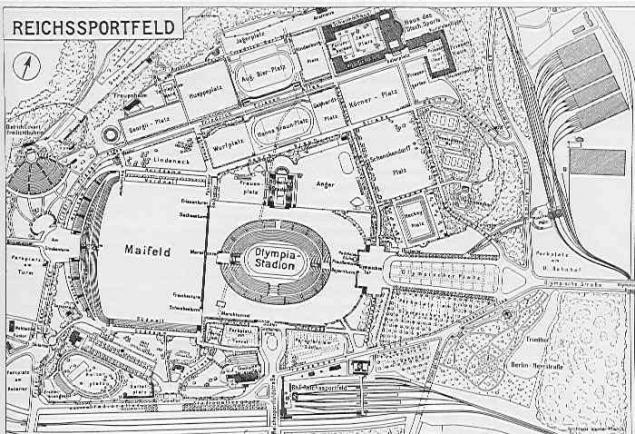
Nazi symbols on the stadium.
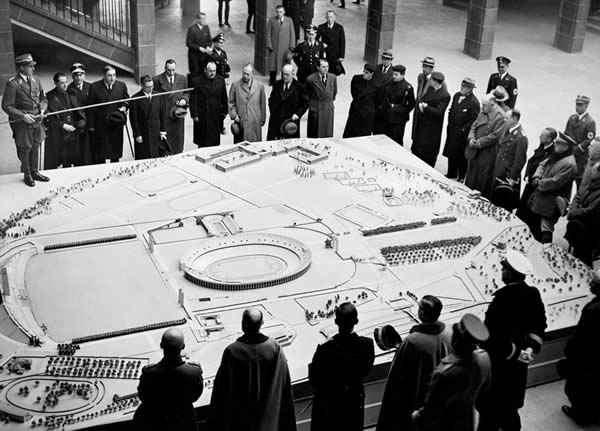
It looked like Berlin in the year of the Games.
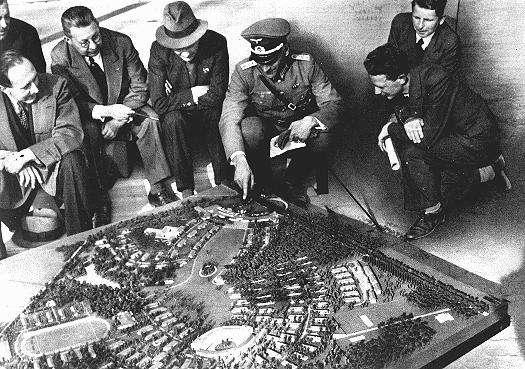
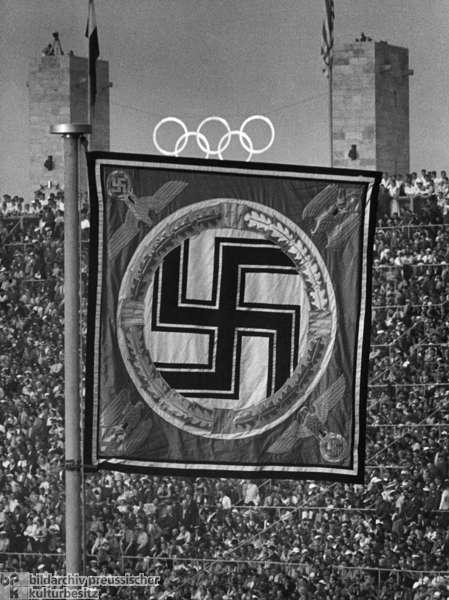
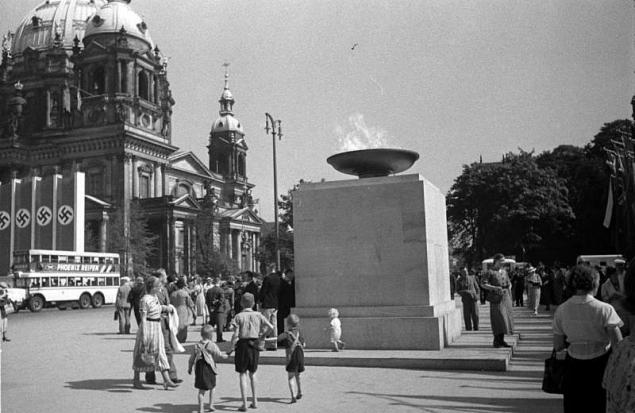
Type the evening stadium with bird's-eye view. Photos sent colleague
Hitler on the podium along with other dignitaries.
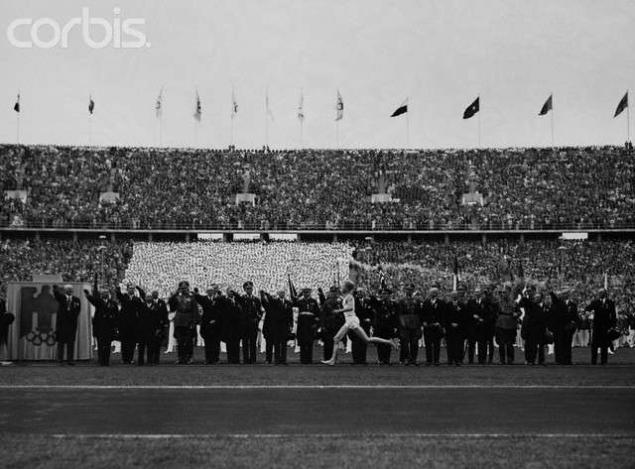
Hitler on his "Mercedes" decorated with swastikas passes through the streets of Berlin. In the photo at the bottom of the shooting competition. Pay attention to the target.
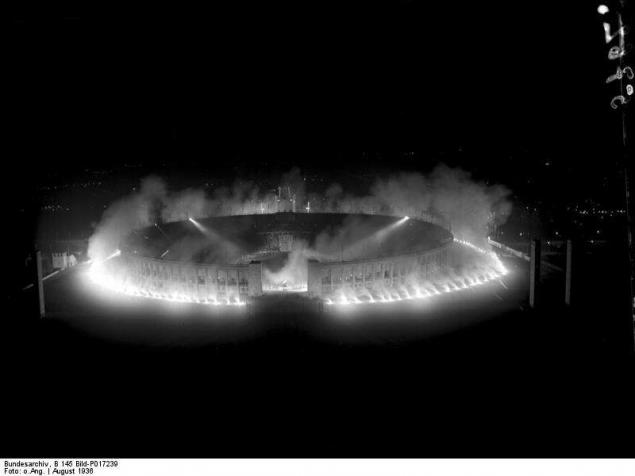
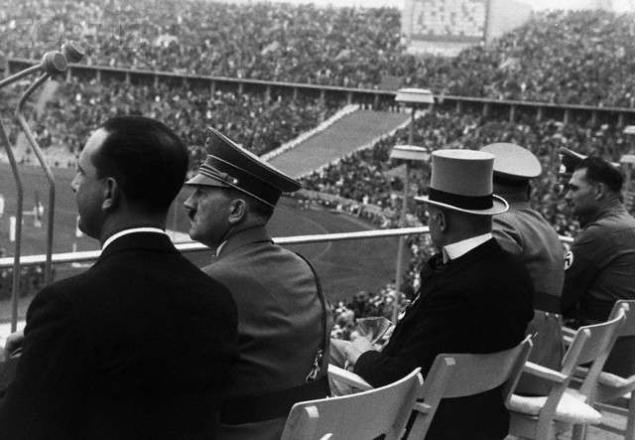
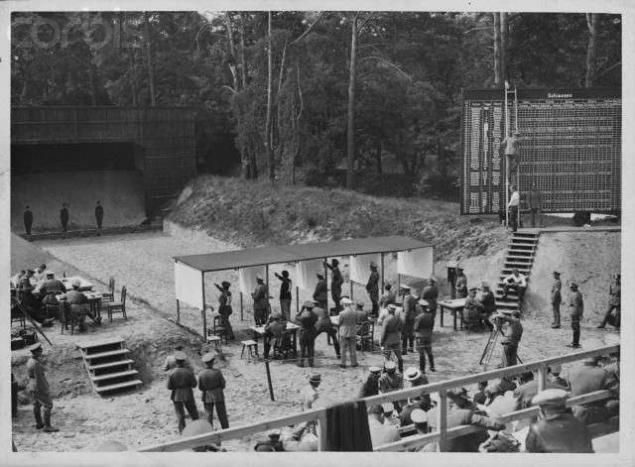
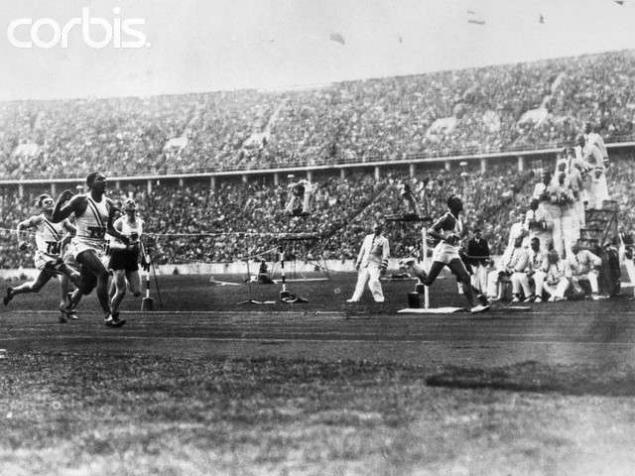
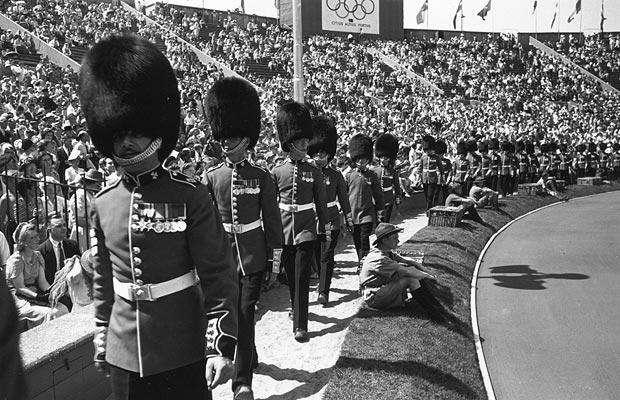
American athletes at the stadium. Far left - Jesse Owens.
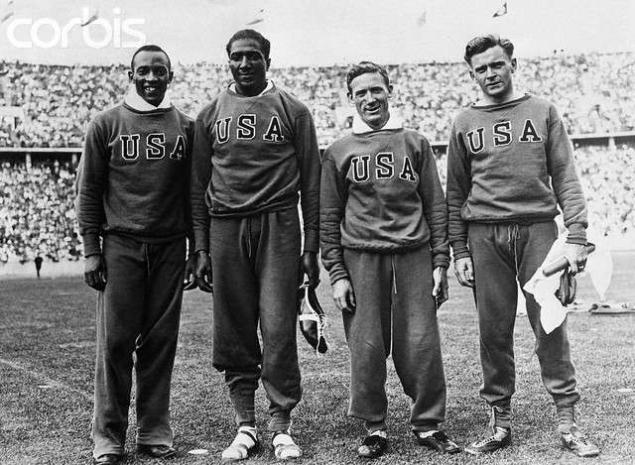
In this picture you can see the members of the organizing committee of the Olympics.
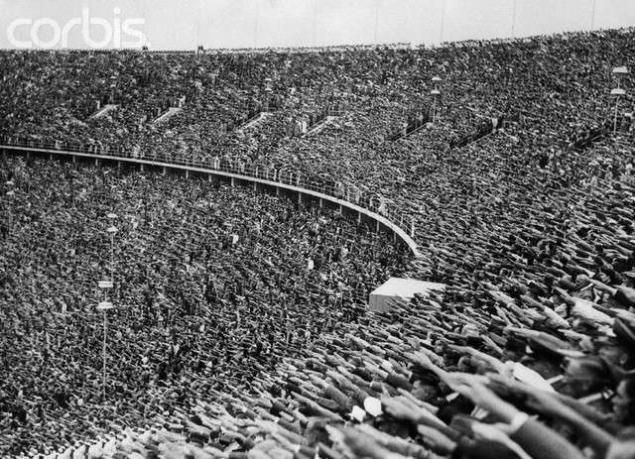
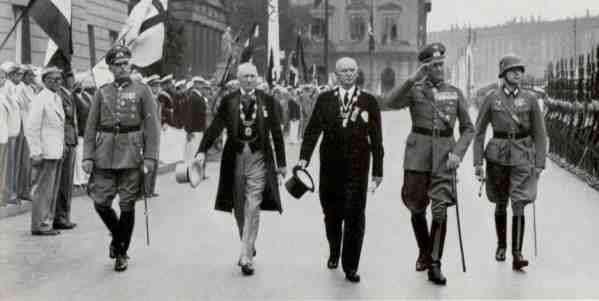
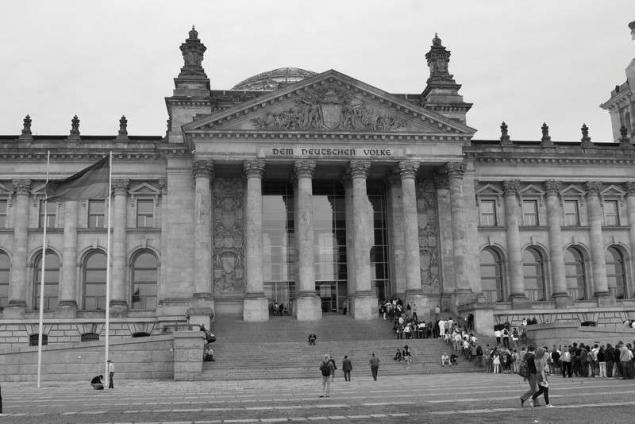
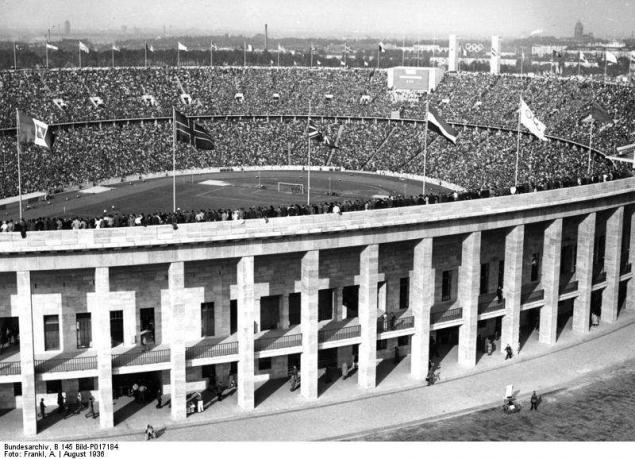
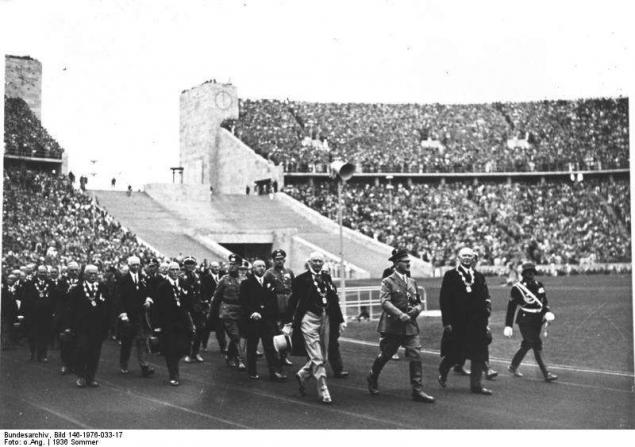
Cartoons of the Berlin Olympics.
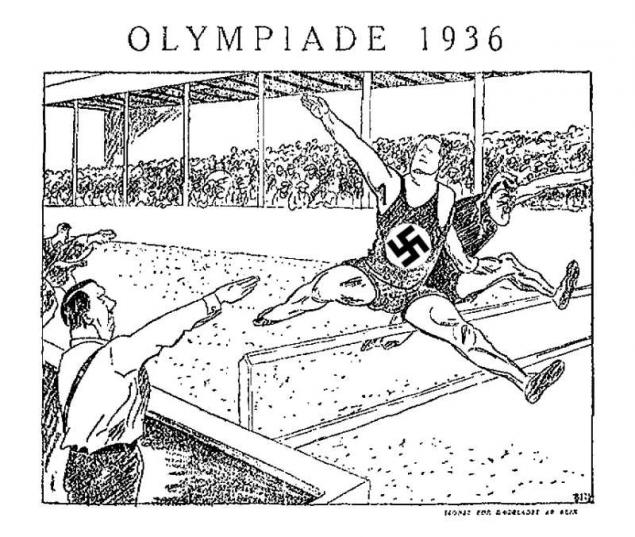
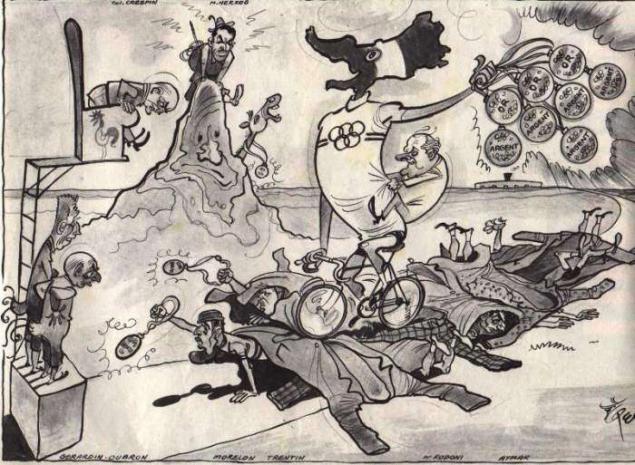
Evening Berlin.
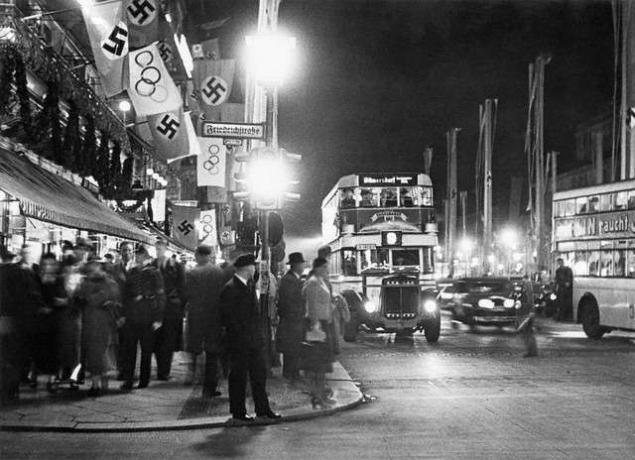
Leni Riefenstahl at work.
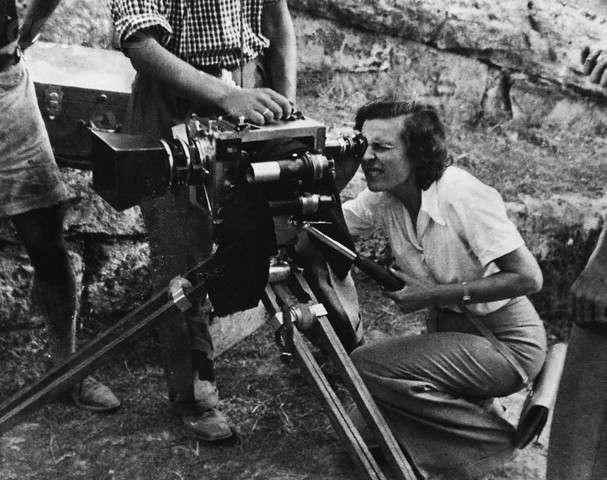
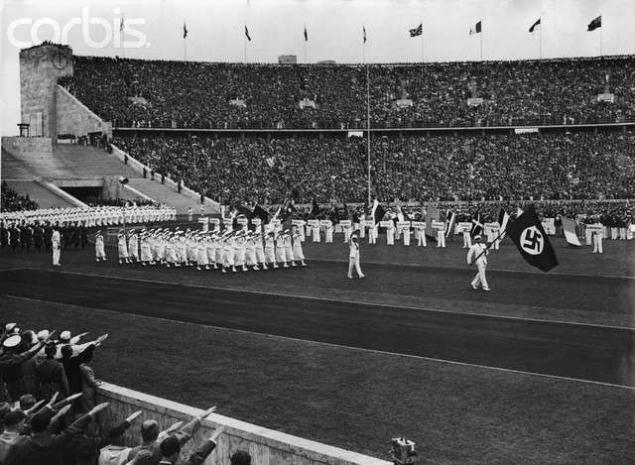
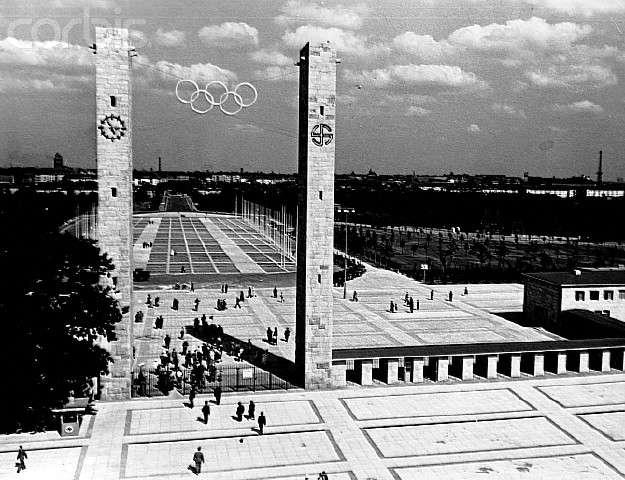
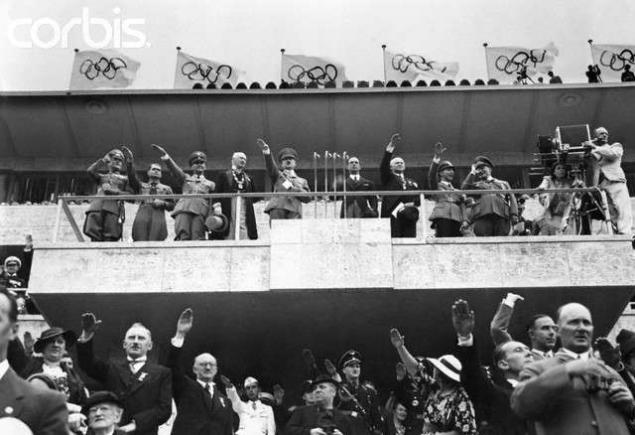
Stills from the film Leni Riefenstahl's "Olympia».
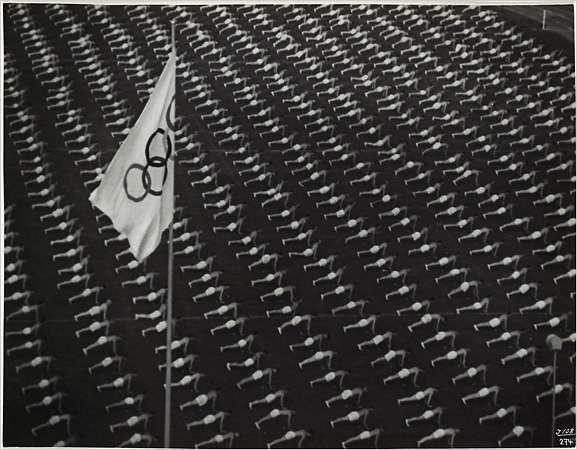
View of the stadium with a zeppelin.
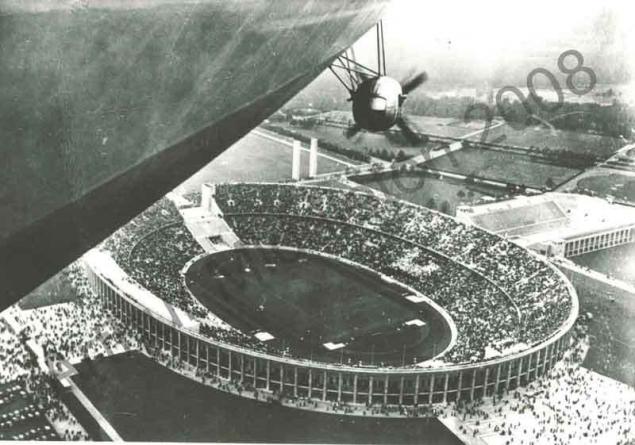
Panorama holiday Berlin.
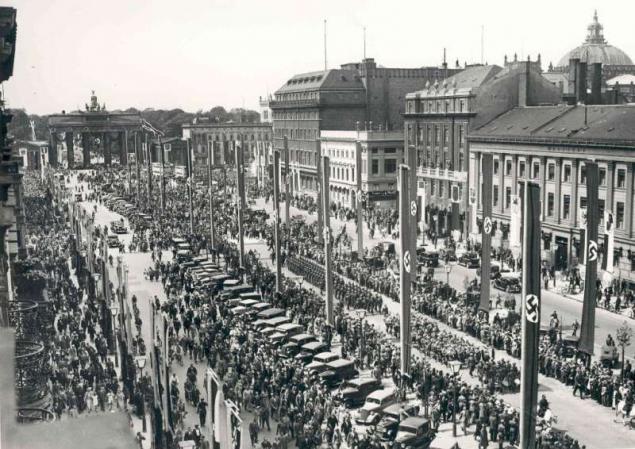
More photos from the archives of Life.
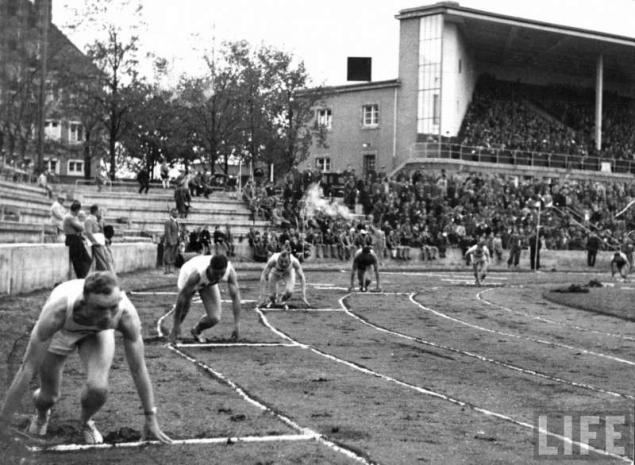
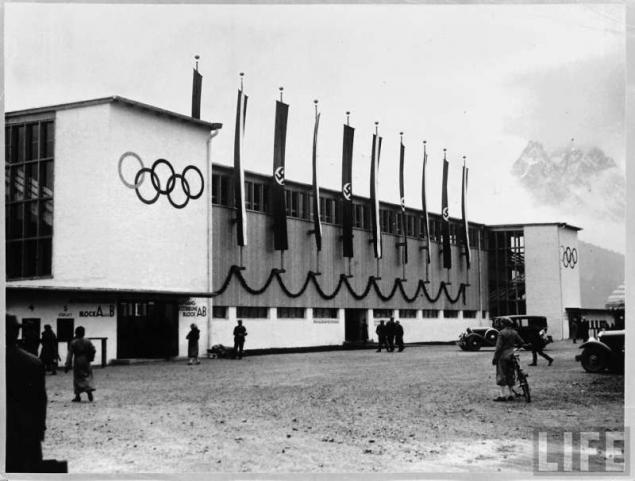
The same Jesse Owens (right photo), along with a companion relaxes in a chair.
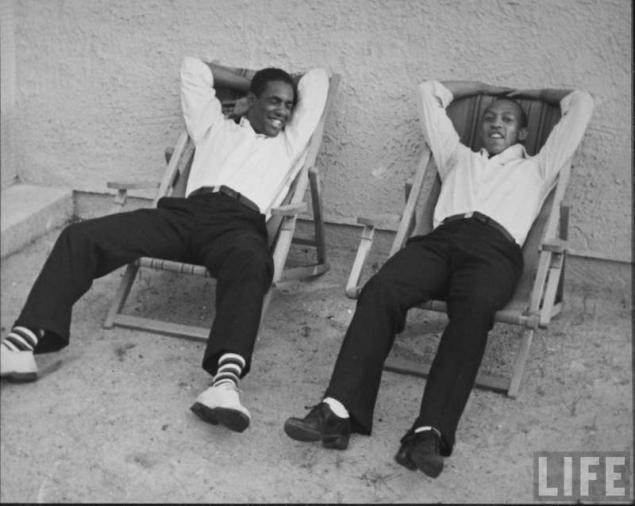
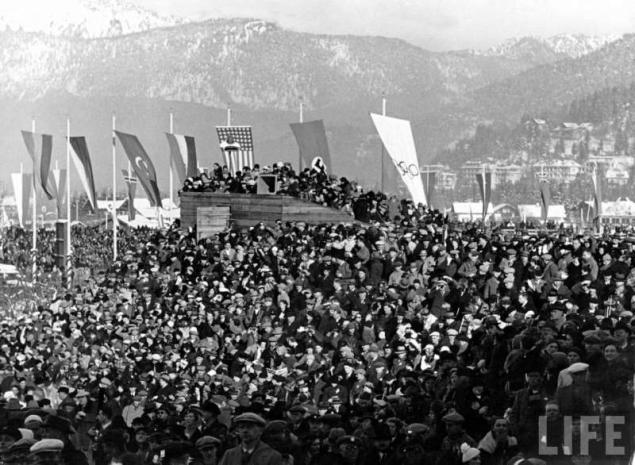
One of the restaurants built for Olympic visitors.
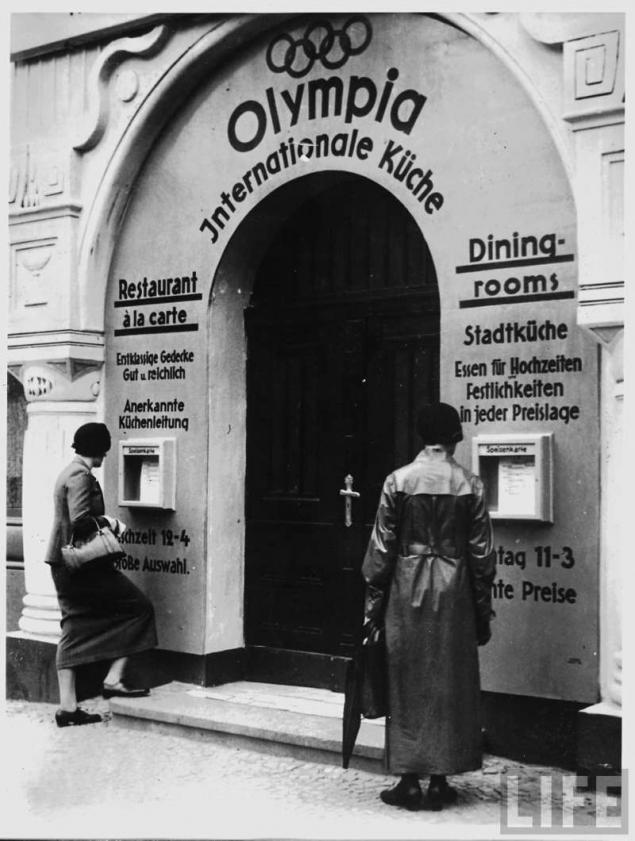
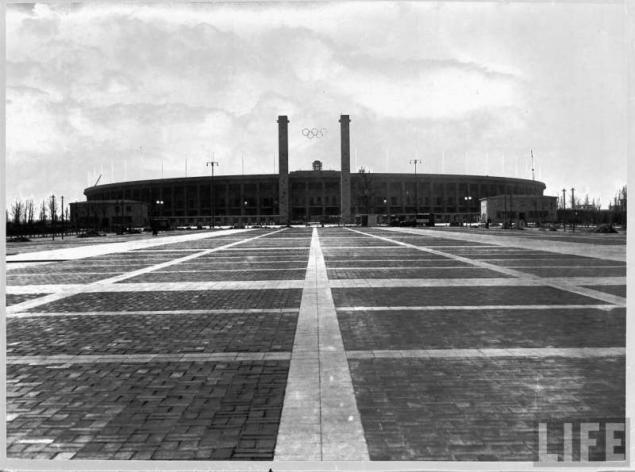
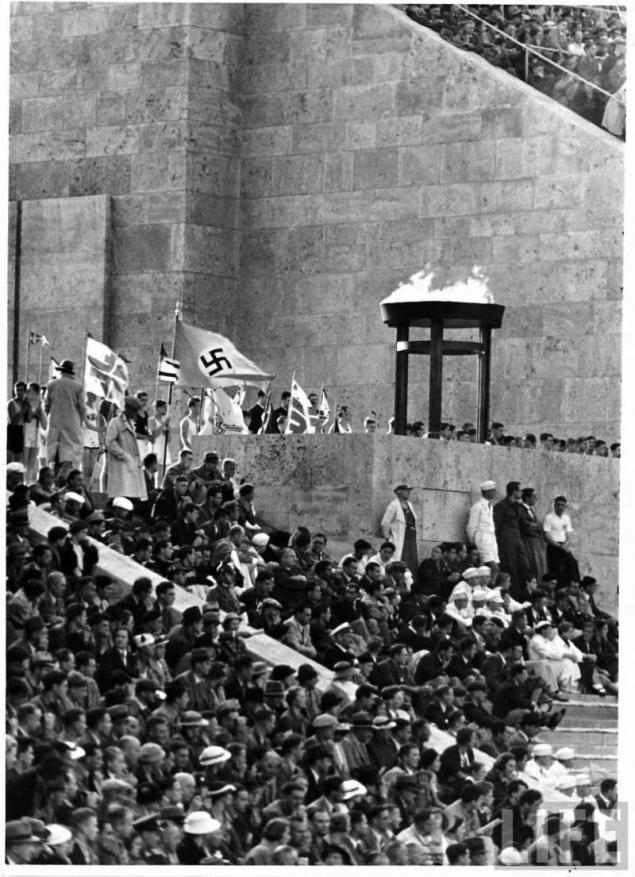
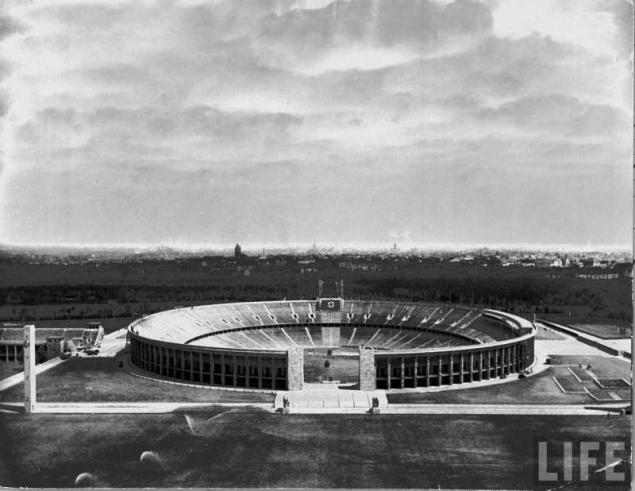
German athletes and officials give the Nazi salute during the medal ceremony.
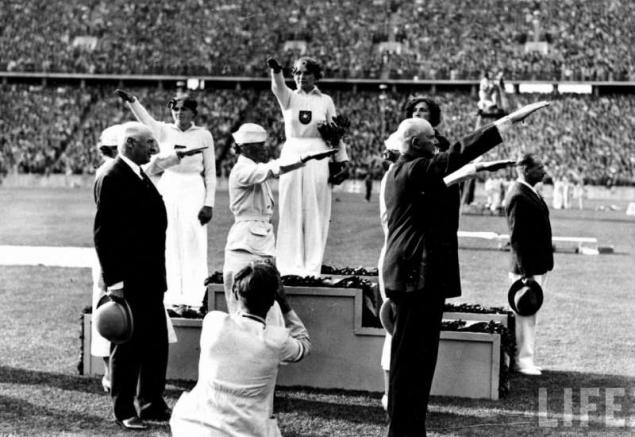
Construction of the zeppelin "Hindenburg».
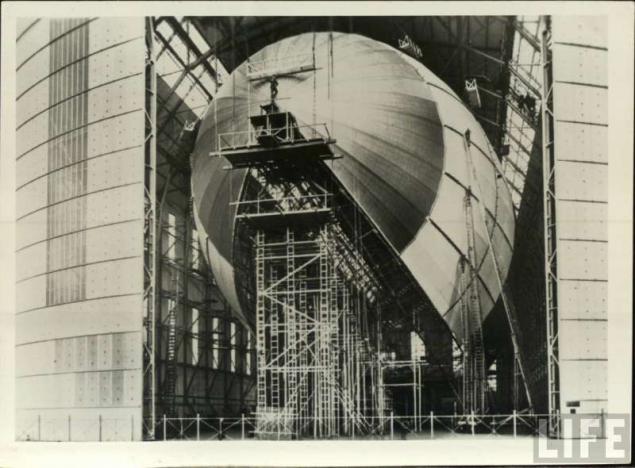
Zeppelin "Hindenburg».
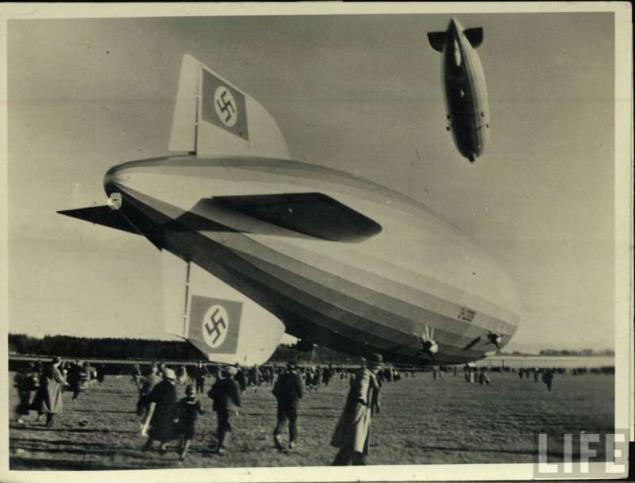
He.
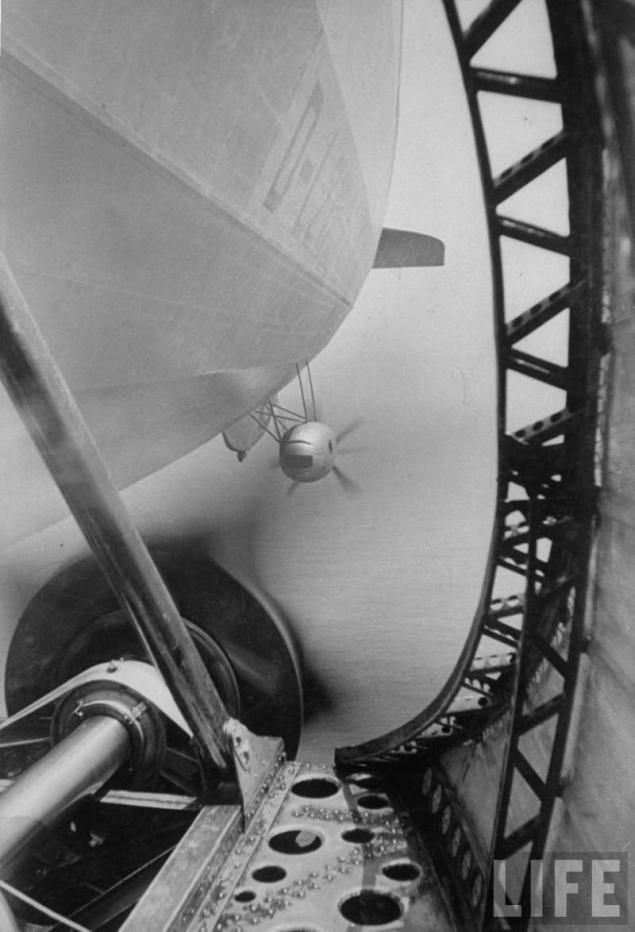
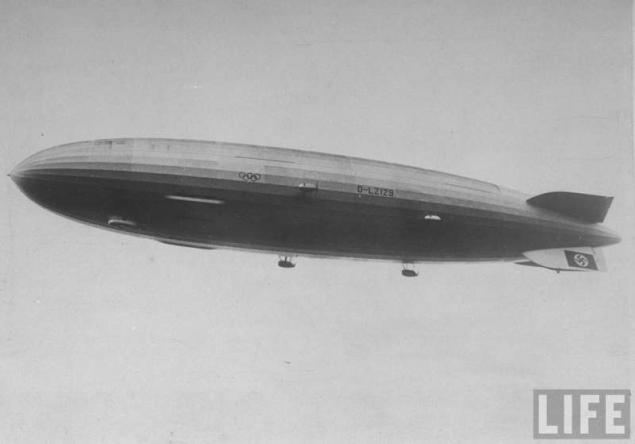
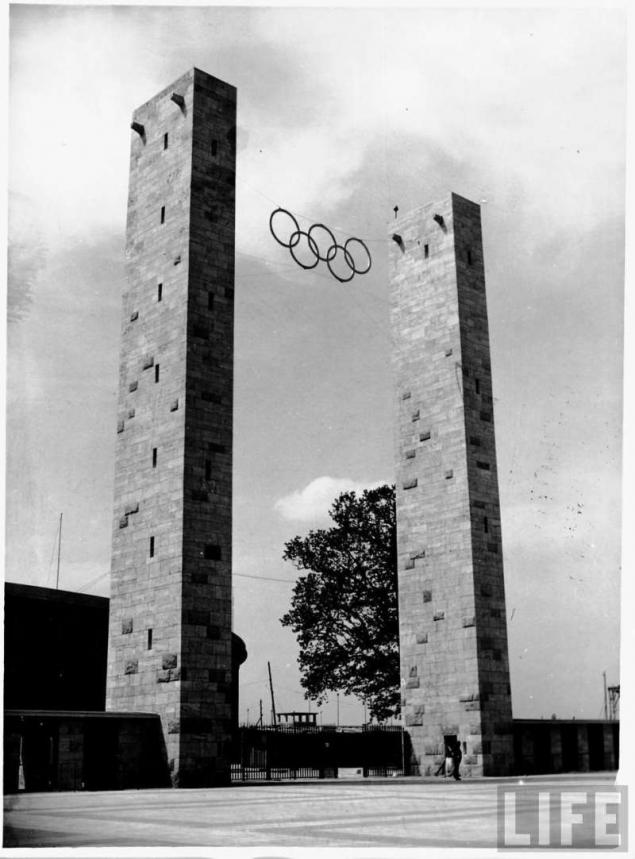
Erwin Kazmir, one of the best swordsmen in Germany.
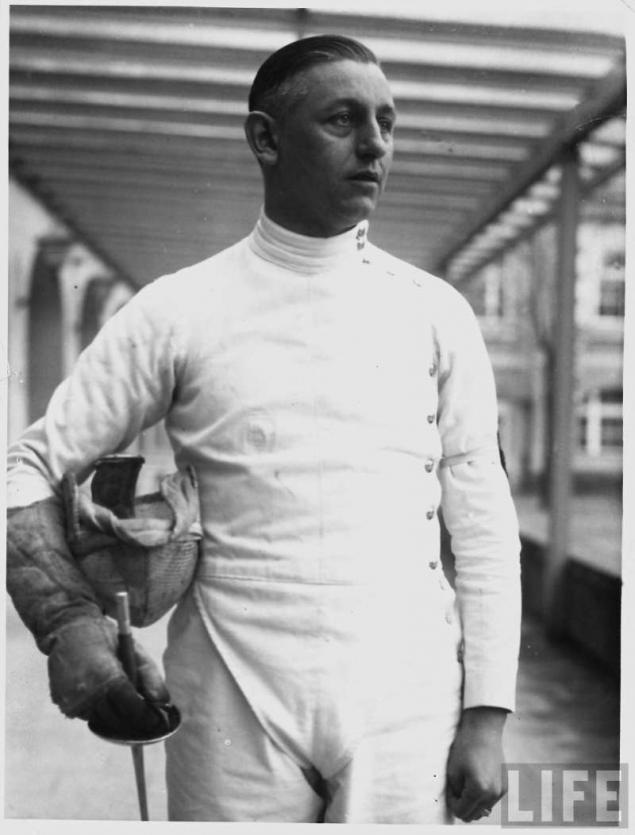

Historic Berlin stadium today is seen by many not only as a sports arena battles, but as a monumental reminder of the Nazi era. It was here, on the "Olympiastadion" Hitler had a grand propaganda campaign and under the pompous music of Richard Wagner opened the Summer Olympic Games in 1936 in front of a crowd of 100 thousand. It was here, to the chagrin of Hitler, the black American athlete Jesse Owens won four gold medals, thereby exposing the myth of the superiority of the question of the Aryan race. It was here two years later, the British met with the German national football team, and during the anthem of Germany, they had to submit to political demands and saluted the Fuhrer. But the British revenge for this humiliation, winning with a score of 6: 3.
The sports complex "Olympiapark", which is now the center of the stadium "Olympiastadion", was built before the First World War, when Germany won the right to host the Summer Olympics in 1916 In 1933, Hitler came to power, taken over not use the area adjacent to the racetrack "Grunwald". His grand plan included the construction of a stadium with a capacity of 86,000 seats, a separate hockey stadium, arena riding, swimming pool and an outdoor sports arena. Sports complex fits to Mayfeldu where the Nazis carried out mass rallies.
Photo 1936.

Stadium today.

Nazi sculpture symbolizing the superiority of the Aryan athletes.
1936 Berlin Olympics - probably the most controversial in the history of the Games. After World War I, in 1920 and 1924. Germany was not allowed to participate in the Olympics. However, this unfortunate fact is not much bothered Hitler - he was convinced that compete with the "inferior non-Aryans" for German athletes would simply humiliating. Bruno Matlits, a representative of the Nazi Party, confirmed this position in a letter to the members of German sports clubs, defining the Olympic Games as "inundated by the French, Belgians, Poles and Jews Negro».
Despite these beliefs Nazis, May 13, 1931, the International Olympic Committee gave Germany the right to host the Games in 1936, this step is explained by the fact that during this period Germany has not been under the power of Nazism, and the IOC decided that such a move will help restore Germany the ranks of civilized countries. Problems arose after 1933, when pronounced nationalist and anti-Semitic views Hitler became state policy. Goebbels made every effort to persuade the Fuhrer to reconsider their attitude to the Olympic Games. He claimed that the Olympics will show to the world community revived power of Germany and provide a first-class party propaganda material. In addition, the contest will allow undoubtedly strong German team to show other peoples 'Aryan' athleticism. Fuhrer persuading. The Fuhrer agreed. For the Games was asignovano 20 million Reichsmarks, ie $ 8 million.
However, in 1934 the world sparked considerable debate about the appropriateness of holding the Games in Berlin. Particularly tumultuous they were in the United States. Jewish, Catholic, religious and secular organizations teamed in its condemnation of the German Games. As said in 1933, the IOC president Avery Brundage:
"The very foundation of the modern revival of the Olympic movement will be undermined by allowing individual countries to limit participation in the Games for reasons of origin, religion or race».
Olympic rules prohibiting any racial or religious discrimination; many athletes and sporitvnye organization insisted on boycotting German Games.
Sam Avery Brundage was categorically opposed to the boycott. He said that the Olympic Games "belong to the athletes, not politicians." In 1935, his motives in the issue of support for the Games began to cause some suspicion, as he suddenly said that in fact behind the opponents of the Berlin Olympics there is a real force - the "Jewish-Communist conspiracy." This bullshit is certainly not true, as against the boycott were even some Jewish sports organization. However, to deal with a wave of protest, Brundage and other officials of the IOC in 1934, visited Berlin and assess the situation of discrimination in Germany. Of course, the Nazis how to prepare for a meeting expensive guest for this visit. In Berlin disappeared any signs of anti-Semitism; committee members were able to meet with athletes Jews who assured them of his full freedom to play sports.
Disputes were resolved to boycott the December 8, 1935, when the Amateur Sports Association voted to participate in the Games. Nevertheless, many athletes all decided not to go to Berlin. On July 1936 was even planned an alternative "People's Olympics" in Barcelona, Spain, but its implementation has prevented the outbreak of the civil war there.
Shortly before the Games in Berlin, 6-16 February 1936, Germany hosted in Garmisch-Partenkirchen (Bavarian Alps) and the Winter Olympics. The Olympics gave the leadership of the Reich chance to try out techniques that then, during the Berlin Olympics were brought to perfection. So, for the sake of decency in the face of foreign visitors were discontinued all sorts of anti-Semitism.
Guests who visited Berlin in 1936 can be understood: many of them thought that the German anti-Semitism - a myth. On the streets and stalls temporarily lost all anti-Jewish posters, brochures and books. German newspapers for the duration of the Games was forbidden to print stories and anti-Semitic articles. Berliner was even ordered from June 30 to September 1, to refrain from negative public statements about Jews. To give the impression of liberalism of the Third Reich, to participate in the Games as part of Team Germany made even one half Jewish (very helpful "Aryan" appearance) - fencing champion Helene Mayer. At the Winter Olympics team was also one athlete and a half Jewish blood - hockey player Rudi points.
The emblem of the Berlin Olympics.

Leadership and the people of Berlin have shown towards athletes and guests arrived generous hospitality. In particular, the consumption of eggs for Berliners was temporarily curtailed, so that guests can eat without restrictions. Temporarily suspended the laws against homosexuals. The whole city was lavishly decorated with swastikas and other Nazi symbols, which gave him a festive and majestic views. Military mobilization was also hidden from prying eyes. Here are the steps the Ministry of Propaganda, which refers to the Olympic Village:
"The northern section of the Olympic Village, originally used by the Wehrmacht, should not be called barracks, now it will be called" the northern section of the Olympic Village "».
The world press was delighted. Only two or three of the most astute reporter could look beyond the beautiful facade - but they did not see the broader picture. In the northern suburbs of Berlin already filled with Jews and other undesirables Oranienburgsky camp.
The opening ceremony of the Games is well remembered by all who saw it. Across the city fired the gun. Hitler personally issued at the stadium "Shportpalast" 20 thousand pigeons. Circled the stadium zeppelin "Hindenburg" length of almost 304 meters with a giant Olympic flag in tow. In the middle of all this splendor to the assembled crowds marched athletes from 49 countries.
It is appropriate to quote Joachim Fest:
"August 1 under the solemn ringing of bells, Hitler opened the Olympic games surrounded by kings, princes, ministers, and numerous guests of honor. When former Olympic champion marfonets from Greece Spyridon Louis gave him an olive branch as a "symbol of love and peace," the choir sang a hymn created by Richard Strauss, and soared into the sky flocks of pigeons in the world. In this picture reconciled the world created by Hitler, fits the fact that some of the outputs of the stadium teams (including the newly subjected to provocations French!) - Passing the podium, raised hands in a Nazi salute, which they later, making up Points on the part of the resistance, willingly have stated "Olympic privestviya" ».

Germany fielded the most numerous team - 348 athletes. Team of the United States was the second largest - 312 people, including 18 African Americans. Led a delegation of the American Olympic Committee President Avery Brundage. The Soviet Union did not participate in the Berlin Games.

Overall, the results XI Olympiad in Berlin were positive for the Reich. Huge investments in physical training and sport have produced results: the German team won 33 gold medals, leaving far behind the rest of the team. The Nazis believed that racial "superiority" Aryans found further confirmation.
However, although many Nazi prejudices like to reiterate some of them came into conflict with reality. Fencer-poluevreyka Helena Mayer took second place, and Jewish athletes from other countries won gold and silver medals. This paramilitary sport as fencing, superiority of the Jews was quite unpleasant for the Nazi leaders. But invaluable Meyer Nazi propaganda more than compensated for this trouble. Standing on the podium she gave the Nazi salute in due form, and at a reception in honor of the winners of the Olympic Games shook hands with Hitler. It captured in a documentary film "Olympia" and Leni Riefenstahl.
In general, awards were distributed as follows.
Number Country Gold Silver Bronze Total
1 Third Reich 33 26 30 89
2 USA 24 December 20 56
3 Hungary 10 January 16 May
Italy 4 September 8 May 22
Finland 5 June 7 June 19
6 France July 6 June 19
Sweden 7 May 6th September 20
8 Japan June 4 August 18
9 Netherlands June 4 July 17
Much more serious challenge to the Nazi dogma and prejudice was the success of the black athlete Jesse Owens of the United States. In general, the US team has proved very worthy and won 56 medals, 14 of them were obtained blacks. Speech Owens made a strong impression on the audience. He not only took part in the relay 4x100 m., And helped the US team to get in this kind of gold, but also won gold in the sprint race at 100 and 200 m., As well as in the long jump.
The striking success of Jesse Owens was a very unpleasant Nazis and put them in an awkward position. Goebbels personally instructed the German press does not veer black athletes during the Games. Instead achieve Owens pushed aside and suppressed, but Hitler refused to shake hands with Owens or any other black athletes. At the same time, the success of the United States Owens presented as the defeat of Nazi ideology. However, the United States and was himself something to think about in terms of race relations. And they have blacks lynched. During the Olympics, there was a very unpleasant incident: Avery Brundage dismissed Marty Glickman and Stoller Sen to participate in the relay in athletics. In track and field team were the only Jews, and act Brundage was rightly regarded by many as an attempt to grovel to please Hitler. If you do not talk about the success of Meyer and black Americans, the 1936 Olympics in Berlin was undoubtedly a success for the Germans. It produced a very strong impression of Hitler; Hitler even Albert Speer said that "in 1940 the Olympic Games will be held in Tokyo. But then they always forever will be held in Germany in this stadium ».
Hitler as a "father of the nation».

After the Games in 1936 the Nazi regime resumed briefly interrupted persecution and oppression of Jews. Within two weeks after the closing ceremonies Jews once again faced with violence and discrimination. Helena Mayer in 1940, became citizens of the United States of changed his name to Meyer. Her uncle was sent to a concentration camp, where he met his death. It is sad to realize Olympics allowed the Third Reich to win the respect in the world. Here's what he wrote 16 August 1936 William Shearer:
"I am afraid that the Nazis succeeded in their propaganda. Firstly, they organized games on a large scale and generosity than ever before; estesvenno athletes liked it. Second, they made a very good reception for all other guests, especially big business ».
It was only after the Second World War in 1939 the world finally saw the true face of Nazi Germany.
Olympic medals.


Project Olympic venues.

Discussion of the draft.


Nazi symbols on the stadium.

It looked like Berlin in the year of the Games.



Type the evening stadium with bird's-eye view. Photos sent colleague
Hitler on the podium along with other dignitaries.

Hitler on his "Mercedes" decorated with swastikas passes through the streets of Berlin. In the photo at the bottom of the shooting competition. Pay attention to the target.





American athletes at the stadium. Far left - Jesse Owens.

In this picture you can see the members of the organizing committee of the Olympics.





Cartoons of the Berlin Olympics.


Evening Berlin.

Leni Riefenstahl at work.




Stills from the film Leni Riefenstahl's "Olympia».

View of the stadium with a zeppelin.

Panorama holiday Berlin.

More photos from the archives of Life.


The same Jesse Owens (right photo), along with a companion relaxes in a chair.


One of the restaurants built for Olympic visitors.




German athletes and officials give the Nazi salute during the medal ceremony.

Construction of the zeppelin "Hindenburg».

Zeppelin "Hindenburg».

He.



Erwin Kazmir, one of the best swordsmen in Germany.

